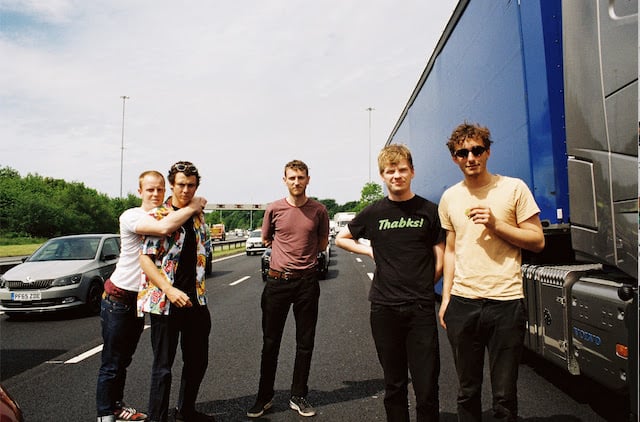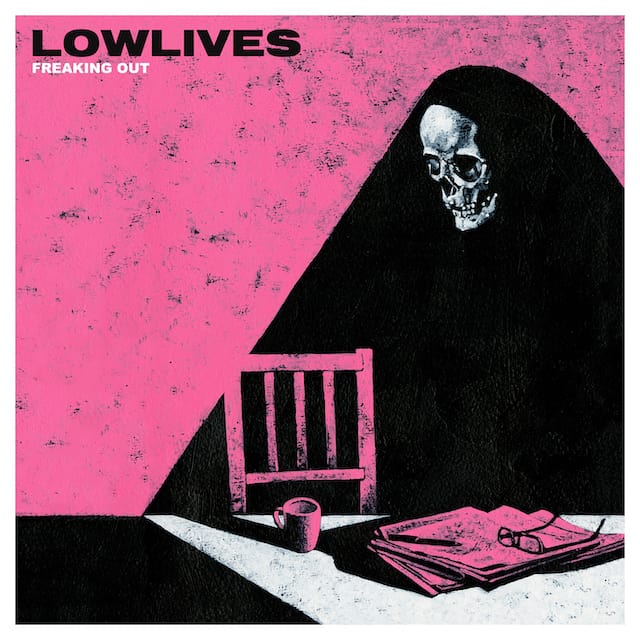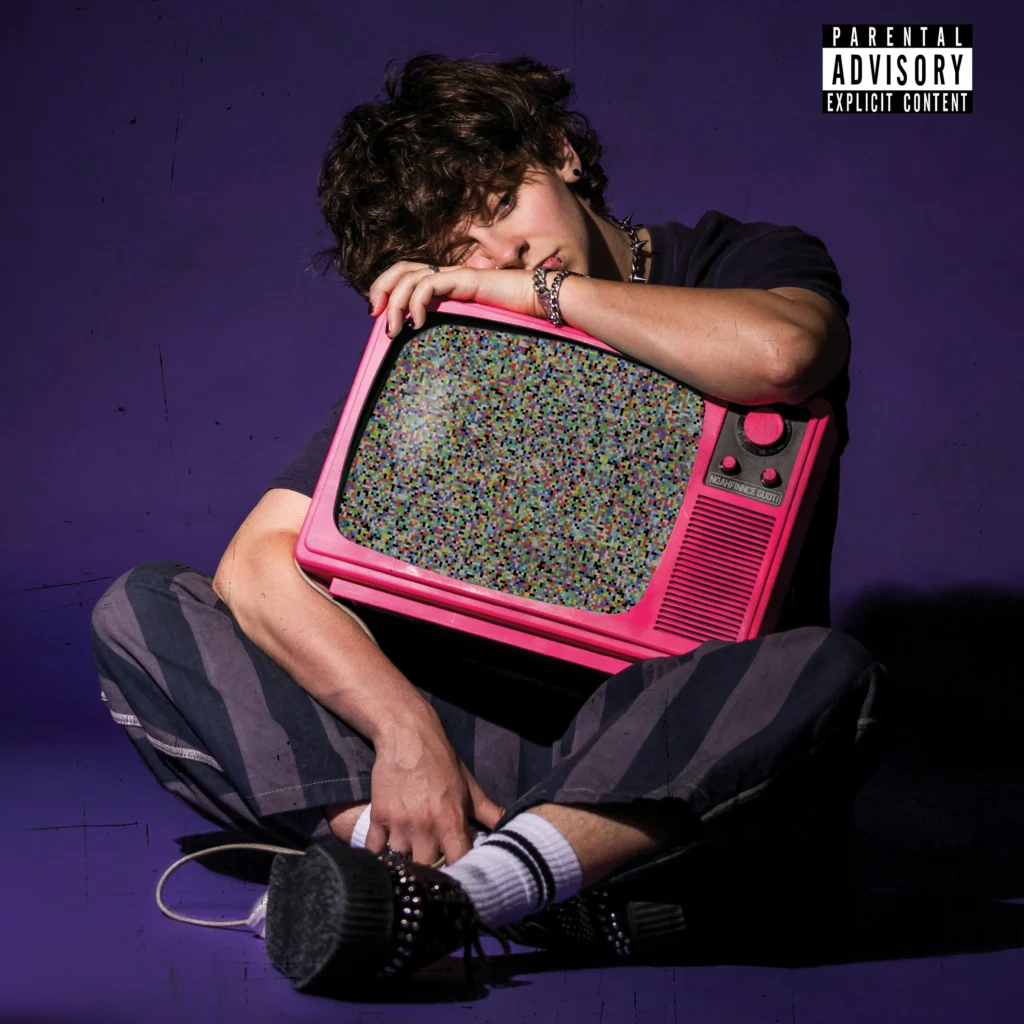In a debut album that is equal parts disorienting and crystal clear in its sound and intention, Squid have offered listeners an unsettling view into their world with 54 minutes’ worth of post-punk goodness. ‘Bright Green Field’ is unafraid in its duality and ability to employ influences ranging from jazz to new wave to krautrock, at a speed that is so jarring and unexpected that you might feel a little whiplashed at the end of the experience. However, there is a distinct energy running like a thread through each track. This is an album that demands to be listened to as a whole, from the quiet, humming ‘Resolution Square,’ all the way to the desperate frustration of closing track ‘Pamphlet.’ This is a debut that puts Squid on the map as a band that doesn’t shy away from experimentation, and the result is an album that feels energised and alive.

On the first listen, it may seem that ‘Bright Green Field’ is pure chaos – disembodied voices lost in radio static; eerie synths droning along beside drummer-singer Olly’s frustrated and repetitive vocals, hinting at a sense of being static and restless; guitars so distorted that each lick blurs into one. In some ways, Squid bear resemblance to bands like La Dispute and Touche Amore with this employment of an almost spoken word technique. But amongst the angst, there are jazz elements that carry multiple tracks along and help them to become clearer, easier to listen to, like the visual ‘G.S.K’ and the political ‘Global Groove.’ Technical skill becomes apparent with the rapid finger-picking present on ‘Narrator’ and ‘2010’ – alongside moments in both of these tracks that become overwhelmingly discordant and jarring, like Martha Skye Murphy’s screaming towards the end of ‘Narrator.’ It is clear that the intention with this album is not for it to be an ‘easy’ listen. Squid want you to endure every moment, even if it’s often nonsensical. Some tracks are purely noise, namely ‘Resolution Square’ and ‘The Flyover,’ but it’s tracks like these that situate the album within the landscape that Squid are trying to create. They create a liminal space effect that leaves listeners feeling unmoored, floating, between one place and the next. Neither here nor there. It’s a track that carries us into ‘Peel St,’ which opens with radio noises. Throughout this track, vocals begin to surge over the noise and feels almost accusing to the listener: ‘where were you when the ice came around/you don’t remember?’
And it’s an effect that pays off. ‘Boy Racers,’ with its funky finger-picked guitar and steady drum track alongside Olly’s upbeat vocals, feels surreal and becomes increasingly odd, especially as the track shifts into a section that feels completely liminal, as if wading through a confusing dream – the use of fuzzy synths and eerie echoes may cause listeners to be checking that they’re still listening to the same song. ‘Paddling,’ a fan favourite, has much of the same effect, creating a small moment or vignette rather than a wider picture, which can often be abstract. This effect can also be seen in track 6, ‘Documentary Filmmaker.’ Most often, however, the album leans into an almost dystopian atmosphere, as heard most distinctly on ‘Global Groove’ – sinister lyrics and eerie, haunting echoes punctuate Olly’s political lyrics – ‘what’s your favourite war on TV […] I’m so sick and tired of dancing/Are you sick and tired of dancing?’
Other songs echo this eerie feeling, like ‘2010.’ As briefly mentioned earlier, the fingerpicked guitar opening evokes imagery of a hazy, relaxed summer day, but there is an undertone of uncertainty created by distorted background vocals that sound like sirens. The layered vocals hint that something will change; and it does. Suddenly, the track bursts into discordant guitar, distorted almost beyond recognition, then settles back into the original sounds the track opens on. But the overlapping vocals continue to create a sense of something not being quite right, ‘I’m upside down/You’re upside down…’ Screeching instrumentals layered over the original guitar brings forward the uncertainty. Like many of the other songs, it feels like listening to a mood swing. And drawing the album to a close is the almost retrospective ‘Pamphlet,’ in which Squid round off the presentation of their bleak world over a punchy drum track and upbeat guitar with lyrics that echo their disillusionment: ‘that’s why I don’t go outside.’
As a debut, Squid have received high praise for their experimentation and the pushing of musical boundaries; ‘Bright Green Field’ is an album that takes a feeling and its goal of showing listeners the ‘ever-changing environment that we live in’ and amplifies it to the max. It is also an album that takes well over just one listen to fully appreciate this fact, and with each listen becomes more enjoyable – even though it remains inherently bleak and frustrating.
Words: India Fishburn
![]()






